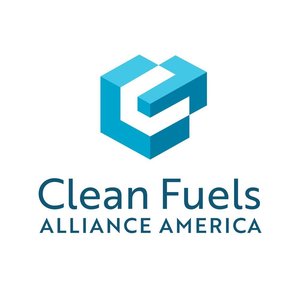Clean Fuels submits testimony for senate hearing on RFS

February 21, 2022
BY Clean Fuels Alliance America
On Feb. 16, Clean Fuels Alliance America submitted written comments to the Senate Committee on Environment and Public Works ahead of its hearing to examine the U.S. EPA’s Renewable Fuel Standard program. Clean Fuels highlighted the RFS program’s role in supporting expansion of domestic biodiesel and renewable diesel production capacity and achieving significant carbon emissions.
“The Renewable Fuel Standard (RFS) is necessary to build domestic alternative fuel production capacity, bolster U.S. energy security, and address environmental health. It is succeeding,” Kurt Kovarik, Clean Fuels’ vice president of federal affairs, writes in the comments.
“Biodiesel and renewable diesel are solutions that reduce carbon now,” Kovarik continues.
Advertisement
The RFS has reduced emissions by nearly a gigaton since its start in 2010. Use of biodiesel and renewable diesel reduced an estimated 143.8 million metric tons of carbon, Clean Fuels notes in the comments. The average gallon of biodiesel and renewable diesel reduces emissions by approximately 74 percent. Every 100 million gallons of biomass-based diesel added to the RFS program obligations each year can reduced emissions by over 600,000 metric tons.
“Maintaining the RFS and its support for domestic biodiesel and renewable diesel producers is crucial right now, as the nation faces an ongoing shortage of diesel fuels,” Kovarik adds. “We need the RFS program because oil refiners are simply unable to meet consumer needs for cleaner, better fuels.”
In 2021, the biomass-based diesel market grew to 3.2 billion gallons – its highest volume ever -- and generated more than 4.8 billion advanced biofuel credits for the RFS program. In 2020, the market reached 3 billion gallons, generating more than 4.4 billion advanced biofuel credits for the RFS. Per recent Reuters analysis, the shortage of distillates is a key supply chain bottleneck that is contributing to inflation that could trigger a recession.
A copy of Clean Fuels’ submitted testimony is available for download.
Advertisement
The U.S. biodiesel and renewable diesel industry supports 65,000 U.S. jobs and more than $17 billion in economic activity each year. Every 100 million gallons of production supports 3,200 jobs and $780 million in economic opportunity. Biodiesel production supports approximately 13 percent of the value of each U.S. bushel of soybeans.
Related Stories
CountryMark on July 22 celebrated the completion of more than $100 million in upgrades at its refinery in Indiana, including those related to soybean oil storage. The facility produces renewable diesel via coprocessing technology.
ATOBA Energy and Air Moana are partnering to implement scalable solutions for the supply of SAF. The collaboration aims to ensure long-term SAF availability while supporting local initiatives to develop sustainable fuel production in Tahiti.
While final IRS guidance is still pending, the foundation of the 45Z program is well defined. Clean fuel producers should no longer be waiting; they can now move forward with critical planning and preparation, according to EcoEngineers.
Neste Corp. on July 24 released second quarter results, reporting record quarterly renewable product sales volumes despite weaker margins. SAF sales were up nearly 80% when compared to the first quarter of 2025.
Valero Energy Corp. on July 24 released second quarter results, reporting a profitable three-month period for its ethanol segment. The renewable diesel segment posted a loss, but the company’s new sustainable aviation fuel (SAF) unit operated well.
Upcoming Events










